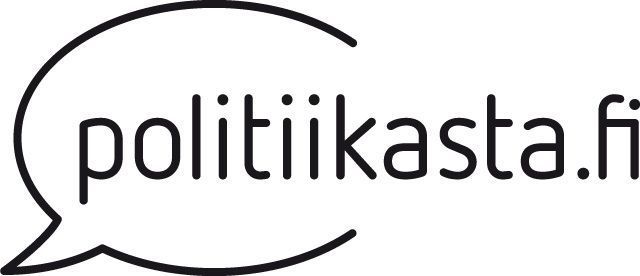Winds of change are blowing in Greek politics, as the two hegemonic major parties, the conservative New Democracy and centre-left PASOK, are losing support in the face of the unpopular policies. The two-party system is transforming into a multiparty one bottom-up. Anthoula Malkopoulou investigates these parties and newly emerging alliances and dynamics, and what do they respond to.
Major realignment presents a historical juncture
In the last months, Greek media have a liking for calling the country an ’experimental laboratory’. The big loan agreements were not aimed at saving the local economy, but at rescuing the common European currency and the global market economy they say. Now, as the first mid-crisis election is approaching, it turns out that Greece has indeed become an ‘experimental laboratory’ of, at least, political change.
The existing party political and ideological alignment is without doubt undergoing a major shift. After the dictatorship ended in 1974, voters were divided between two major parties, which represented historical national divisions and antagonistic clientelist structures. But now, the political divisions are being channelled to many more parties that are divided into ‘pro-Memorandum’ versus ‘anti-Memorandum’ blocs. Indeed, a binding Memorandum of Understanding on Specific Economic Policy Conditionality, signed with international creditors, has triggered such social turmoil and nationalist sentiment that caused a dramatic shattering of the political landscape.
From two-party to multi-party system?
The result of such conceptual realignment is a radical transformation of a two-party system into a multi-party system. From 1981 until 2009, the two major political forces conservative New Democracy (ND) and centre-left Panhellenic Socialist Movement (PASOK) have been capturing together over 80 percent of the electorate. Yet, joining the outgoing cooperation government six months ago to enforce the Memorandum brought for them major losses. According to latest gallup polls, PASOK and ND are about to become medium parties, since together they are hardly reaching the minimum 40.4 percent needed to form a government.
Populist-right Popular Orthodox Rally (LAOS) is also hurt, polling hardly above the required three percent, despite its late rejection of the new Memorandum and exit from the coalition. The same low is scored by another pro-Memorandum party, Democratic Alliance, a liberal splinter group, led by a once popular ND leadership contestant.
This picture is completed by the rise of Anti-Memorandum parties, mostly on the radical left, but also on the extreme right. Thus, the two previously-minor Left parties (SYRIZA and KKE) have seen their popularity soaring from an average of 6 percent to at least 10 percent each now. Similar advantage is gained by Democratic Left, a progressive SYRIZA splinter party. Marginally above the electoral threshold are the newcomer Ecologist Greens.
On the right side, the brand-new Independent Greeks, a nationalist ND splinter party, formed only two months ago, have risen dynamically to 7 percent. Even further to the right, the neo-nazi Golden Dawn is also expected to make its debut in parliament.
As a result, a big shift is expected from an outgoing five-party parliament -two major plus three minor parties- to a new ten-party legislature that will comprise two medium, four enlarged minor and four very minor parties. The last time the Greek Parliament has included so many political forces was between 1989 and 1993, with a short-lived simple proportional system in place. Since that change had failed to promote pluralist politics and coalition formation, this is now being realized de facto by a bottom-up social urgency.
Lack of coalition experience and rhetoric of governing parties
Even if a considerable number of voters remain undecided, there is no doubt that the new government will be based on a coalition. Amidst fears that there is little experience of coalition formation and the country cannot afford an extended period of political instability, PASOK has taken up the issue in its pre-election rhetoric, urging for a programmatic rather than person-centred settlement. ND adopted a more rigid strategy and is trying to rally its voters with promises of a one-party government.
On the opposite camp, SYRIZA is calling for a coalition of anti-Memorandum parties from both left and right, citing an ongoing agreement with the Independent Greeks. PASOK and ND are trying to counter this convergence of opposition parties by moving the conceptual centre of political alignment from the Memorandum agreement to the EU itself, which polls suggest is still favoured by most Greeks. This new division to pro-EU versus anti-EU forces offers also the possibility to uncover the anti-Memorandum populism and to urge both originally Euro-communist SYRIZA and the nationalist Independent Greeks to take a clearer position.
In addition, PASOK and ND receive a large amount of external electoral support in political communication, by foreign political and economic leaders and press. For example, Barroso, Lagarde andothers keep underlining the disastrous effects of a potential Greek exit from the Euro, while Merkel has recently negated any possibility of renegotiating the Memorandum. At the same time, the two ex-major parties are trying to sell themselves as parties of ‘responsibility’ and ‘governmentability’. Together they are expected to poll between 35 and 45 percent.
Opposition rhetoric and the dynamic of new parties
The four up-and-coming left parties might be all anti-Memorandum, but feature significant rhetorical differences nonetheless. From the old left, the KKE continues to brand itself as a radical workers’ party, against neo-liberal globalization and capitalist imperialism. SYRIZA is staged as the protector of popular sovereignty and society from creditors and the aspiring leader of a grand left and/or anti-Memorandum coalition.
From the new left, the Democratic Left is branded as a progressive party that embodies the democratic socialism that PASOK has abandoned and supports economic development; albeit a newcomer, it has lost some of its original flair by recently accepting dissenting PASOK members in its ranks. Finally, the Ecologist Greens advocate exit from the crisis through a green economy, investing on agriculture and renewable energy. The four left parties are expected to collect together between 27 and 34 percent of the vote.
On the right anti-Memorandum side of the spectrum, the late coalition-partner LAOS is desperately trying to distance itself from the governing parties and save its anti-immigration profile from a serious leak to ultranationalist Golden Dawn. The latter openly adheres to neo-nazism, fascism and racism and pleads to protect citizens’ safety in the sidewalks from anti-immigrant criminality. Its rise has been troubling Greek society, which was one of the worst hit by the German Nazi Occupation.
Another economic protest party are the Independent Greeks, formed by ND dissidents, who advocate protection of national sovereignty and traditional values against the creditors. Finally, pro-Memorandum Democratic Alliance of former ND aspirant leader appears as the Greek branch of the European Liberals. Altogether, the four right-wing opposition parties are expected to poll between 16 and 25 percent.
Attempts at renewal and lost chances
Besides ideas and rhetoric, there has been a demand to renew the political personnel. New parties have claimed to work in this direction, yet have recycled dissidents of other parties and have been themselves built around the personality of a very recognisable leader (Bakogianni-DemAlliance, Kouvelis-DemLeft, Kammenos-IndGreeks). Only the Ecologist Greens, Golden Dawn and minor group DRASI seem to have real new recruits without prior parliamentary experience, while the Greens are also the only party with a decentralised leadership.
ND and PASOK have also responded to calls for renewal by launching new candidates. However, there is still a significant lack of female and young candidates in both parties and ND in particular. Especially the lack of women’s representation in Greek politics has been notorious; with only 18,7% of women, Greece ranks 71st on IPU’s global list of women in national parliaments. Hence, the chance for an increased politicization of women in this critical moment has gone unexploited.
The times could have also been a chance for a renewal of political culture. Real state budget constraints and commitments to international creditors make it impossible to promise political favours, such as public service employment. As a result, focus is indeed directed more toward comprehensive programs and new ideas. However, a great bulk of pre-election time is being wasted on cross-accusations, negative comments and personal attacks for the crisis, thus missing the chance to engage with the voters in a real ideological and programmatic discourse.
Are people disillusioned with democracy?
Admittedly, these elections are permeated by a general sentiment of reaction. Firstly, it is a reaction against political corruption and distrust of politicians, with regard to their good intentions or simply their ability to come up with viable solutions. This is expressed by the disposition to outvote old parties and their members of parliament. The latter are trying to live up by promising a constitutional reform that will promote transparency, decrease politicians’ own expenses and clear their finances.
Secondly, reaction is directed against the Memorandum agreement and its clauses that have led the majority of the Greek population to poverty or emigration. Indignation against job losses, public wage and pension cuts and the lack of public investment in economic development has had two consequences. One is the intention to vote against the Memorandum-parties. The other is to throw support behind Left or Far-right populist parties that defend the rights of working people and disagree with these economic policies in principle.
Thirdly, it is a reaction to the so-called pervasion of national sovereignty, which is allegedly violated with the intervention of the EU, IMF and Germany in national budget control and economic policy-making. Not only has this sensation fuelled increased support for two new nationalist parties (Independent Greeks and Golden Dawn), it has also generated leftist claims for the protection of sovereignty (e.g. by SYRIZA) and a general increase in the use of patriotic rhetoric also by the governing parties.
The worst aspect of this national resurgence is the direct or indirect targeting of immigrants as causes of the crisis and a tendency to fuel public feelings of anger, fear and insecurity against them. Golden Dawn’s practice of terrorizing immigrants in the streets, including with severe beatings and assassinations, is proof of an extra-parliamentary sense of law and order and a general contempt of institutions. The radical left KKE has also been traditionally critical of bourgeois democracy, therefore SYRIZA tries to take distance by proclaiming its intention to follow the Constitution and to act within the scope of the parliament’s rules of order as the potential leader of an aspiring left government.
Other than these marginal examples, there is little criticism of parliamentary democracy as such. In fact, the channelling of public resentment into diverse political choices should be seen as a positive development in Greek politics. Although new parties do not always have a coherent or humanistic agenda, they offer valid alternative choices and a podium for new persons to enter politics. The crisis has generally increased politicisation and reinvigorated political participation. This is visible in spontaneous campaigns against abstention or blank voting and a general expectation that voter turnout in next Sunday’s elections will remain at high levels. As a result, it is plausible to say that, despite some symptomatic drawbacks, the debt crisis has widened and deepened the scope of democratization in Greece.




